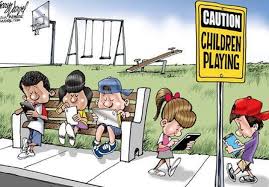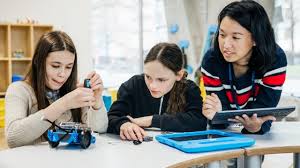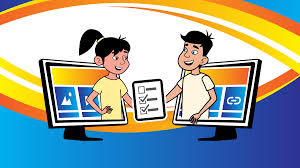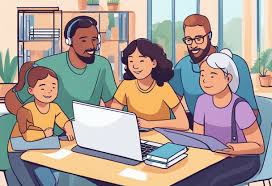Social Media Ruining Childhood

The claim that social media is “ruining childhood captures increasing worries over children’s emotional and psychological welfare in the age of the internet, Yet, in such a sweeping generalization lies an oversimplification of a multifaceted reality. As a parent of a young boy whose fascination with the solar system drives his daily learning, I’ve seen how social media has served as a potent site for his inquiries, communication and identity development. Far from degrading childhood, platforms such as kids learning tube, solar balls, and planet balls provide a means to engage like-minded others exchange findings and view inspiring education

al content that may not take place in conventional classroom environments. Digital environments, when guided with purpose, are not intrinsically deleterious—they are terrain for development.
Dr. Becky Kennedy, in her Good Inside podcast episode “Deep Dive”@ Sharonsayso on Preparing Kids for Social Media and the Internet” discusses the more complex perspective. Along with Sharon McMahon, she discusses preparing children with social media rather that for it. Kennedy points out, “It’s not about protecting them from it entirely but helping then learn to maneuver this world with awareness and skill.” They recommend developmentally appropriate discussions, digital literacy and boundary setting; my son for instance, doesn’t like mindless scroll; instead, he enthusiastically makes drawings and crafts characters/planets and shares with his friends and family. This encourages creativity, self-expression and confidence and digital proficiency—all while apart of childhood development.
InternetMatters.org published a report in 2025 detailing the benefits of social media for young users, specifically in developing social relationships, creativity, and access to educational resources. In their research, “For children with niche interest or social challenges, digital platforms can be lifelines for learning and belonging.” In my household, this isn’t a theory—its everyday life. Through collaborative digital activities, my son is learning teamwork, digital citizenship and problem solving.  This activity does not destroy childhood; it enriches it beyond the confines of time, geography and even imagination.
This activity does not destroy childhood; it enriches it beyond the confines of time, geography and even imagination.
Undeniably, social media concerns are real, particularly in relation to screen time, and possible cyber bullying. However, as researchers such as Sonia Livingstone (2018) contend, the answer is proactive digital parenting, not prohibition. Through co-engagement with children online, modeling healthy habits and setting clear expectations, parents can turn social media from risk into assets. As the world evolves, so does childhood activities.  As parents and caregivers, we are to be open-minded about this trajectory and balance the contemporary withe the conventional. My son is enjoying his childhood and social media is far from stealing his childhood innocence. He engages in several outdoor activities when he is not on social media. Guided digital participation provides children with autonomy tools, creativity, and global citizenship; while permitting them to be unapologetically, children who, like my son fantasize about planets.
As parents and caregivers, we are to be open-minded about this trajectory and balance the contemporary withe the conventional. My son is enjoying his childhood and social media is far from stealing his childhood innocence. He engages in several outdoor activities when he is not on social media. Guided digital participation provides children with autonomy tools, creativity, and global citizenship; while permitting them to be unapologetically, children who, like my son fantasize about planets.

Hey Sadi! Thank you for sharing your son’s experience with social media and how it has been a positive outlet for his interest in the solar system. My own two children have also had positive experiences with social media in exploring their interests. My son uses YouTube as a tool to learn more about baseball skills and strategies to improve in the sport he loves so much. My daughter is so creative and crafty. She uses outlets like Pinterest to learn new skills, such as crochet and cooking, and Shuffles to create collages and vision boards. I think that when we set kids up for success online with the right kind of support, they can grow the skills to use social media as a tool for good and growth.